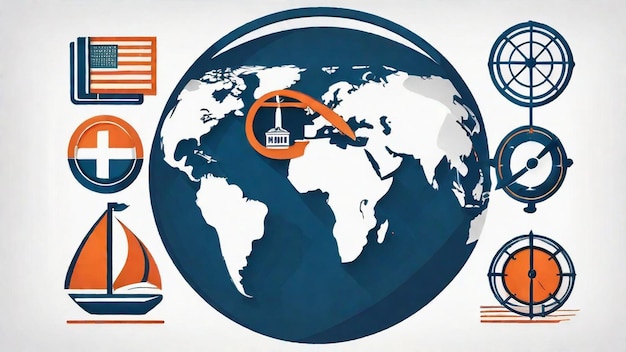Navigating The Complexities: The Challenges Facing Foreign Auto Brands In China

Table of Contents
Regulatory Hurdles and Bureaucracy
China's automotive regulatory environment presents significant hurdles for foreign brands. Intricate regulations, complex procedures, and substantial costs can significantly impact profitability and market entry. These regulatory complexities include:
- High Import Duties: Substantial import tariffs increase the cost of foreign vehicles, making them less competitive compared to domestically produced cars.
- Complex Certification Processes: Obtaining the necessary certifications and approvals can be a lengthy and bureaucratic process, often involving multiple agencies and extensive testing.
- Stringent Emission Standards and Safety Regulations: China has increasingly stringent environmental and safety standards, requiring significant investment in compliance for foreign automakers.
- Navigating Local Government Approvals and Permits: Securing the necessary permits and approvals at the local government level can be challenging and time-consuming.
These regulations significantly impact profitability and market entry strategies. Overcoming these hurdles often requires strategic partnerships, such as joint ventures with local Chinese manufacturers, and proactive engagement with regulatory bodies through lobbying efforts and careful compliance planning. Understanding the nuances of Chinese automotive regulations is paramount for success.
Intense Domestic Competition
The Chinese automotive market is not only large but also incredibly competitive. Domestic automakers have rapidly grown in strength, posing a significant challenge to established foreign brands.
- Rise of Strong Domestic Brands: Companies like BYD, Geely, and Great Wall Motors are rapidly innovating and expanding their market share, leveraging their understanding of local consumer preferences and a cost-effective production model.
- Aggressive Pricing Strategies: Local manufacturers often employ aggressive pricing strategies, undercutting foreign competitors on price.
- Rapid Technological Advancements: Chinese automakers are rapidly advancing their technology, incorporating features like electric vehicles and advanced driver-assistance systems (ADAS).
- Growing Preference for Domestic Brands: Many Chinese consumers increasingly prefer domestic brands due to factors such as patriotism, price, and perceived quality.
This intense competition necessitates a strategic differentiation approach for foreign brands. Focusing on niche markets, emphasizing superior technology and brand building, and offering unparalleled customer service are crucial to competing effectively and maintaining market share in the face of this intense competition.
Cultural and Consumer Preferences
Understanding Chinese consumer preferences and cultural nuances is crucial for success in the Chinese automotive market. These preferences vary significantly across regions and demographics.
- Regional Variations in Preferences: Consumer preferences for vehicle features and styles can differ substantially between urban and rural areas, and between different age groups.
- Emphasis on Practical Features: Chinese consumers often prioritize features like spaciousness, fuel efficiency, and advanced technological features.
- Importance of After-Sales Service: Strong after-sales service and customer support are critical for building trust and loyalty among Chinese consumers.
- Influence of Social Media: Social media and online reviews heavily influence purchasing decisions, necessitating a strong online presence and positive brand reputation.
Successful foreign auto brands adapt their marketing strategies and product offerings to cater to these specific preferences through localized marketing campaigns and product adaptations. Understanding and responding to these cultural and consumer factors is essential for building brand recognition and fostering strong customer relationships.
Supply Chain and Infrastructure Challenges
Establishing and maintaining efficient supply chains in China presents unique logistical challenges for foreign automakers.
- Finding Reliable Suppliers: Sourcing reliable and high-quality components can be challenging, requiring thorough due diligence and strong supplier relationships.
- Geopolitical Risks and Trade Tensions: Geopolitical uncertainties and trade tensions can disrupt supply chains and create unforeseen logistical issues.
- Complex Transportation Infrastructure: Navigating China's vast and complex transportation infrastructure requires sophisticated logistics management.
- Environmental Compliance: Ensuring compliance with environmental regulations throughout the supply chain adds another layer of complexity.
Building resilient and localized supply chains is crucial to mitigate these risks. Foreign automakers must prioritize risk management strategies, diversify their supplier base, and implement robust contingency plans to ensure business continuity.
Intellectual Property Protection
Protecting intellectual property rights (IPR) in China remains a significant challenge for foreign automakers.
- Risk of Counterfeiting and IP Theft: The risk of counterfeiting and intellectual property theft is substantial, requiring strong protective measures.
- Importance of Legal Protection: Robust legal protection and proactive enforcement are essential to safeguarding IPR.
- IP Management Strategies: Companies need to implement comprehensive IP management strategies to minimize risks and protect their innovations.
- Government Support for IP Protection: While the Chinese government is increasingly focused on strengthening IP protection, vigilance and proactive measures are still necessary.
Foreign auto brands must adopt proactive and robust IP protection strategies, including registering patents and trademarks, employing effective legal counsel, and establishing strong internal controls to safeguard their intellectual property.
Conclusion: Navigating the Complexities: Key Takeaways and a Call to Action
The challenges facing foreign auto brands in China are significant and multifaceted. From navigating complex regulations and intense domestic competition to understanding cultural nuances and protecting intellectual property, success requires a deep understanding of the market's unique characteristics and a well-defined strategy. However, the potential rewards are equally substantial. The Chinese automotive market represents a vast and lucrative opportunity for those willing to invest the time, resources, and strategic planning necessary to overcome these hurdles.
To succeed, foreign auto brands must prioritize thorough market research, adapt their products and marketing to Chinese consumer preferences, build strong relationships with local partners, and proactively address regulatory and IP protection concerns. We encourage you to delve deeper into the Chinese automotive market through further research, utilizing resources such as industry reports, consulting firms specializing in the Chinese market, and relevant government websites. Thorough planning and a commitment to adaptation are essential for navigating the complexities and unlocking the vast potential of this dynamic market. Successfully navigating these challenges facing foreign auto brands in China will pave the way for long-term success in this crucial market.

Featured Posts
-
 Trump On Powell No Intention To Remove Fed Chair
Apr 24, 2025
Trump On Powell No Intention To Remove Fed Chair
Apr 24, 2025 -
 Us Stock Futures Trumps Words And Market Volatility
Apr 24, 2025
Us Stock Futures Trumps Words And Market Volatility
Apr 24, 2025 -
 Canadian Auto Dealers Five Point Strategy To Navigate Us Trade Tensions
Apr 24, 2025
Canadian Auto Dealers Five Point Strategy To Navigate Us Trade Tensions
Apr 24, 2025 -
 Rocket Launch Abort Blue Origin Cites Subsystem Failure
Apr 24, 2025
Rocket Launch Abort Blue Origin Cites Subsystem Failure
Apr 24, 2025 -
 Trump Supporter Ray Epps Defamation Lawsuit Against Fox News Details Of The Jan 6th Allegations
Apr 24, 2025
Trump Supporter Ray Epps Defamation Lawsuit Against Fox News Details Of The Jan 6th Allegations
Apr 24, 2025
